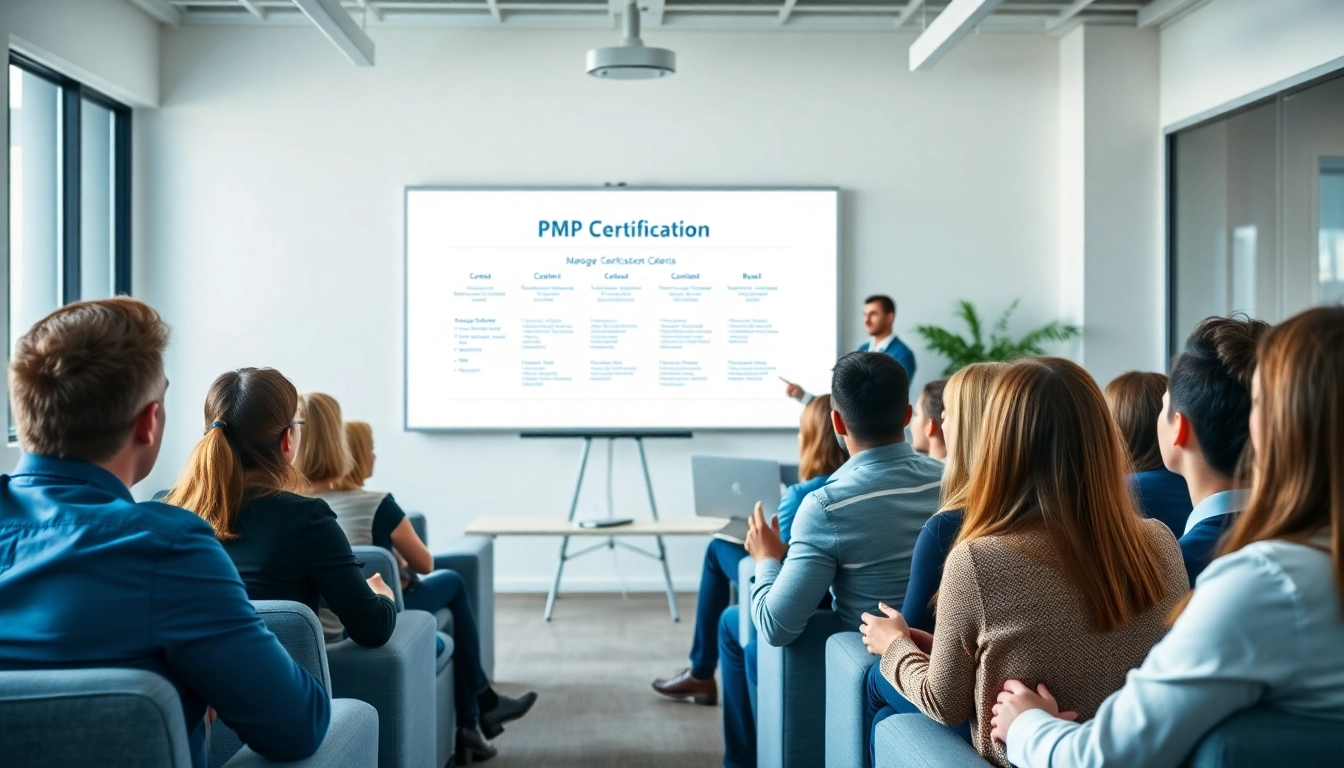Understanding PMP Certification
What is PMP Certification?
PMP (Project Management Professional) certification, offered by the Project Management Institute (PMI), is a globally recognized credential that signifies a project’s manager’s proficiency. This certification demonstrates a professional’s knowledge, skills, and experience in project management. PMI developed it to validate the expertise of project managers who lead and direct projects and portfolios in various environments.
Benefits of Obtaining PMP Certification
One of the most appealing aspects of PMP certification is its tangible benefits. Some major advantages include:
- Enhanced Career Opportunities: PMP certification opens doors to higher-level positions and opportunities in different industries.
- Increased Earning Potential: According to the PMI salary survey, PMP-certified professionals earn approximately 20% more than their non-certified counterparts.
- Global Recognition: PMP is recognized worldwide, making it easier to work in different countries or industries.
- Stronger Network: Being PMP certified connects you with a community of professionals, offering networking opportunities.
- Improved Skill Set: Preparing for the PMP certification helps you enhance your project management skills leading to better project outcomes.
PMP Certification Eligibility Criteria
Understanding eligibility criteria is crucial when considering PMP certification. Here are the requirements set by PMI:
- For those with a four-year degree: 36 months of leading projects and 35 hours of project management education.
- For candidates without a four-year degree: 60 months of leading projects and 35 hours of project management education.
Additionally, project management education can be obtained through various sources, including formal courses, PM workshops, or professional organizations, such as the pmp certification offered by various training institutes.
The PMP Certification Process
Steps to Apply for PMP Certification
The application process for PMP certification is structured yet straightforward. Here’s how to go about it:
- Complete the Application: Register on the PMI website and fill out the application form detailing your project management experience and education.
- Application Review: PMI will review your application to ensure it meets the eligibility criteria.
- Payment: Once approved, pay the examination fee. PMI members receive a discount on this fee.
- Schedule the Exam: After payment, schedule your examination through the PMI website.
Preparing for the PMP Exam
To successfully navigate the PMP exam, thorough preparation is essential. Here are steps to prepare:
- Study Guide and PMBOK® Guide: Acquire the latest edition of the PMBOK® Guide, as it’s the primary reference for the exam.
- PMP Prep Courses: Join PMP preparation courses offered online or in-person. These courses can provide useful insights and techniques.
- Practice Exams: Taking practice exams can help familiarize you with the exam format and question types.
- Study Groups: Collaborating with peers can help you understand complex subjects through group discussions.
Choosing the Right Study Materials
Selecting proper study materials is vital for effective learning. Here are recommendations for study resources:
- PMBOK® Guide: The foundational text for the PMP exam, covering all essential subjects.
- PMP Exam Prep Books: Consider well-reviewed titles, such as “PMP Exam Prep” by Rita Mulcahy and “Head First PMP” by Jennifer Greene.
- Online Courses: Platforms like Coursera, Udemy, or LinkedIn Learning offer comprehensive courses.
- Flashcards: Create or buy flashcards to help memorize key concepts and terminologies.
PMP Certification Exam Insights
What to Expect on Exam Day
An understanding of what to expect on the exam day can alleviate anxiety and improve performance. Here’s what to prepare for:
The PMP exam spans 4 hours and comprises 180 questions. You will typically face a mix of multiple-choice, multiple responses, and fill-in-the-blank questions, with a focus on situational and scenario-based queries. It’s crucial to ensure you arrive early, verify your ID, and familiarize yourself with the testing environment.
PMP Exam Question Format and Structure
The exam consists of three types of questions:
- Multiple Choice: Select one correct answer from multiple options.
- Multiple Responses: Choose two or more correct answers from a list.
- Fill in the Blanks: Complete a statement to formulate an accurate response.
The exam focuses on various domains, including people, process, and business environment, covering the five process groups: initiating, planning, executing, monitoring and controlling, and closing.
Common Mistakes to Avoid
Failing to adequately prepare for the PMP exam can lead to setbacks. Here are common mistakes candidates make:
- Neglecting the PMBOK® Guide: Many underestimate its importance and fail to study it thoroughly.
- Inadequate Practice: Ignoring practice tests can lead to unfamiliarity with the question format.
- Pacing Issues: Mismanaging time during the exam can cause you to rush through questions.
- Dismissing Experience: Relying too much on theoretical knowledge without leveraging practical experience is a common pitfall.
Maintaining Your PMP Certification
Understanding PMP Continuing Certification Requirements (CCR)
Once you obtain your PMP certification, you must maintain it through continued professional development. The Continuing Certification Requirements (CCR) system mandates that you must earn 60 PDUs every three years to maintain your credential.
How to Earn PDUs (Professional Development Units)
PDUs can be obtained through various activities, categorized into three primary areas:
- Education: Attend courses, workshops, seminars, or webinars.
- Organizational Contributions: Take part in projects or initiatives that contribute to the project management profession.
- Self-Directed Learning: Engage in activities like reading books or articles, watching educational videos, or completing online courses.
Renewal Process for PMP Certification
The renewal process for PMP certification entails submitting your PDUs to PMI through your PMI account. Ensure you complete this process before your certification expires. Additionally, maintain a documented record of your PDUs as PMI conducts audits randomly.
Leveraging PMP Certification for Career Advancement
Connecting with the Project Management Community
Networking is a critical element for career advancement in project management. By joining organizations and attending events, you can connect with other professionals, share best practices, and learn about job opportunities. Consider becoming an active member of PMI and participating in local chapters or industry conferences.
How PMP Certification Impacts Salary and Job Prospects
The impact of PMP certification on earning potential and job prospects is significant. Studies consistently show that PMP-certified professionals earn higher salaries and have better job stability compared to their non-certified peers. Companies often prefer PMP certified project managers when hiring for key positions due to their verifiable knowledge and skills.
Strategies for Highlighting Your PMP Certification on Resumes
To effectively leverage your PMP certification on your resume, consider these strategies:
- Prominent Placement: List your PMP certification near the top, under your name or contact information, to draw immediate attention.
- Include Specific Achievements: Highlight projects where you applied PMP knowledge successfully, detailing quantifiable outcomes.
- Tailor for Specific Job Descriptions: Customize your resume for the job you’re applying for, emphasizing relevant project management skills and experiences.



